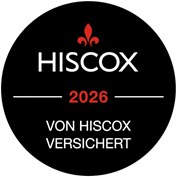Introduction
In an increasingly interconnected global economy, effective supply chain management is critical to the success of any organization. From sourcing raw materials to delivering finished products to customers, every step of the supply chain must be optimized to ensure efficiency, cost-effectiveness, and customer satisfaction. However, as supply chains become more complex, many organizations struggle to manage their end-to-end processes, resulting in inefficiencies, delays, and increased costs.
This case study showcases how Allotrope GmbH helped a client transform their supply chain from end-to-end, enabling them to increase efficiency, reduce costs, and meet time-to-market objectives. Through a combination of process optimization, digital integration, and strategic vendor management, we helped the client overcome significant challenges and achieve remarkable results.
Client Background
Our client is a leading manufacturer in the Pharmaceutical industry, with operations spread across multiple countries. As a company that relies heavily on global suppliers and logistics networks, the client’s supply chain was a critical component of their business operations. However, they faced several challenges that were negatively impacting their ability to meet customer demands and maintain profitability.
Before engaging with Allotrope GmbH, the client’s supply chain was characterized by:
-
- Fragmented Processes: Disjointed supply chain processes across different regions led to inconsistent performance, high error rates, and a lack of visibility into overall operations.
-
- High Logistics Costs: Inefficient routing, lack of coordination between transportation providers, and inadequate inventory management resulted in elevated logistics costs.
-
- Frequent Delays: The client experienced frequent delays in the delivery of critical components, leading to production bottlenecks and missed delivery deadlines.
Recognizing the need for a comprehensive supply chain transformation, the client approached Allotrope GmbH for support.
Challenges Faced
As we began our engagement with the client, it became clear that their supply chain challenges were rooted in several key areas:
1. Process Fragmentation The client’s supply chain processes were highly fragmented, with each regional operation using different systems and procedures. This lack of standardization made it difficult for the client to monitor overall performance, identify inefficiencies, and implement improvements. Additionally, the fragmented processes created silos within the organization, leading to communication breakdowns between different teams and departments.
2. High Transportation and Logistics Costs The client’s logistics costs were significantly higher than industry benchmarks. This was due in part to inefficient routing, as well as a lack of coordination between the client’s various transportation providers. Without a centralized system for managing transportation, the client struggled to optimize routes, consolidate shipments, and negotiate favorable contracts with logistics providers.
3. ERP System & Reporting Challenges The client faced significant challenges due to operating in multiple countries, each using different Enterprise Resource Planning (ERP) systems. This fragmentation led to limited visibility in key areas such as reporting, customer service management, production, finance, customs compliance, and quality control. Inconsistent data hindered accurate reporting and decision-making, causing inefficiencies in production planning and customer responses. Additionally, scattered financial data complicated revenue tracking and compliance with local regulations. Overall, the lack of integration among ERP systems created bottlenecks and increased operational costs, undermining the client’s ability to respond swiftly to market changes.
4. Vendor Management Challenges The client’s supplier relationships were largely transactional, with little focus on building long-term partnerships. As a result, the client faced challenges in negotiating favorable terms, ensuring timely deliveries, and maintaining consistent quality across their supplier base.
The Allotrope Approach: End-to-End Supply Chain Transformation
At Allotrope GmbH, we believe that supply chain transformation requires a holistic, end-to-end approach that addresses every stage of the supply chain lifecycle. Our team of experts worked closely with the client to develop and implement a comprehensive transformation strategy that addressed their specific challenges.
1. Process Mapping and Optimization Our first step was to conduct a detailed process mapping exercise to identify inefficiencies and bottlenecks within the client’s supply chain. By analyzing each step of the process — from sourcing to production to distribution — we were able to gain a clear understanding of where improvements could be made.
Once the process mapping was complete, we worked with the client to optimize their supply chain processes. This involved standardizing procedures across different regions, streamlining communication between teams, and implementing best practices for inventory management, transportation, and vendor management.
2. Digital Supply Chain Integration To enhance visibility and control, we implemented a digital supply chain management system that provided real-time data on inventory levels, shipments, and supplier performance. This centralized system allowed the client to monitor their entire supply chain from a single platform, enabling faster decision-making and improved coordination between different regions.
The digital integration also included the implementation of predictive analytics tools, which helped the client forecast demand, optimize inventory levels, and anticipate potential disruptions in the supply chain.
3. Vendor Selection and Logistics Management As part of the transformation, we worked with the client to reevaluate their vendor relationships and logistics providers. We assisted the client in selecting new logistics partners that offered better pricing, faster delivery times, and more reliable service. Additionally, we helped the client renegotiate contracts with their existing suppliers, ensuring more favorable terms and improved performance metrics.
Our team also introduced a vendor management system that allowed the client to track supplier performance, monitor contract compliance, and build stronger, more collaborative relationships with their key suppliers.
Results and Impact
The end-to-end supply chain transformation delivered significant results for the client:
1. Improved Efficiency By optimizing supply chain processes and integrating digital tools, the client achieved a 25% reduction in lead times and a 15% reduction in overall operational costs. The streamlined processes enabled faster decision-making and reduced the likelihood of errors or delays.
2. Enhanced Visibility and Control The implementation of the digital supply chain management system provided the client with real-time visibility into their entire supply chain. This allowed them to monitor performance metrics, track shipments, and make data-driven decisions about inventory levels, production schedules, and resource allocation.
3. Cost Savings in Logistics Through the renegotiation of logistics contracts and the optimization of transportation routes, the client reduced their logistics costs by 20%. The centralized transportation management system also allowed for better coordination between different regions, resulting in more efficient routing and reduced fuel consumption.
4. Stronger Supplier Relationships The shift from transactional supplier relationships to collaborative partnerships resulted in improved supplier performance, better pricing, and more consistent quality across the client’s supply chain. The client now has long-term agreements with their key suppliers, which provide stability and predictability in their procurement processes.
5. Increased Customer Satisfaction The improvements in supply chain efficiency and reliability enabled the client to meet customer demands more consistently, resulting in higher levels of customer satisfaction. By reducing lead times and ensuring timely deliveries, the client was able to enhance their reputation in the market and secure new business opportunities.
Conclusion
This case study demonstrates the transformative impact that a well-managed supply chain can have on a business. By partnering with Allotrope GmbH, the client was able to overcome significant challenges, streamline their supply chain processes, and achieve remarkable results. Through a combination of process optimization, digital integration, and strategic vendor management, the client achieved greater efficiency, cost savings, and improved customer satisfaction.
At Allotrope GmbH, we are committed to helping businesses navigate the complexities of modern supply chains and achieve their strategic goals. Whether you’re looking to optimize your existing supply chain or embark on a full-scale transformation, our team of experts is here to support you every step of the way.






